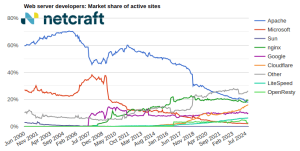A dedicated server is where one customer gets exclusive use of a machine for hosting purposes. Under shared hosting, there are many users hosted on a single server and there are many predefined limits on access to resources on the server. A dedicated server has no such limits, and allows for greater flexibility and control.
Even among dedicated servers, there are options for less or greater control. It can be fully or partly managed by the customer. The duties can be split between the customer and the web hosting company. Taking into consideration all possible arrangements, it still offers far greater options as regards software and scripts, access to the root, rebooting, and selection/adjustments in the OS.
As far as the operating system is concerned, it can be open source as in a free UNIX or Linux variant. It could also be a licensed Windows server or an enterprise Linux version with support. Which one is most suitable depends on the size and nature of the hosting requirements and the type of server. A small business would rightly prefer not to spend on the OS, while a large or medium scale company with heavy traffic and security issues might prefer a more secure OS.
Dedicated servers can be classified into two basic types – managed and unmanaged. There is a vast gap in between, where the division of responsibilities varies from host to host, depending on the kind of hosting package. Most of the time, the customer has superuser rights with root access and can install or modify scripts and software. The hosting company will like as not take care of the OS.
With fully managed servers, the hosting company will take care of all the administration. The customer simply has to use available tools and resources, manage content and operate the site. Unmanaged servers, on the other hand, give the user complete responsibility for all the administration.
To summarize, the benefits of dedicated servers include greater control, access and flexibility to use or modify tools, software and server settings. With no other users to share the server, the full resources of the server are at the user’s disposal. This not only makes the operation more secure and powerful, it also offers the ability to better manage growth of the online operations and sudden traffic surges and usage.
These are all premium features, and a dedicated server doesn’t come cheap. Compared to relatively cheap hosting solutions like shared hosting or VPS, dedicated servers cost a lot more. The precise figure will vary, based on hardware specs, choice of operating system (free, enterprise, licensed) and the bandwidth plan (metered or unmetered).




